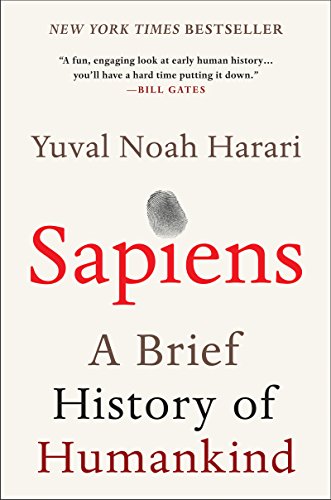

This article is an excerpt from the Shortform summary of "Sapiens: A Brief History of Humankind" by Yuval Noah Harari. Shortform has the world's best summaries of books you should be reading.
Like this article? Sign up for a free trial here .
What is game theory? What’s a good game theory example?
Game theory is the study of outcomes in negotiation and conflict that aren’t actually intended by the individuals involved in that negotiation or conflict. In these situations, the outcome is determined not by an individual’s choices, but by the way an individual’s choices interact with the choices of other “players.”
We’ll look at a game theory example and explore other theories that explore the idea that we’re serving cultures, not the other way around.
Game Theory Example: Arms Races
Game Theory: Culture as a Game That No One Wins
Let’s look at the game theory example of arms races. Scholars in the social sciences compare arms races to a game that no one wins. Arms races benefit no country or individual. Like a parasite, an arms race hurts all the players involved, and yet the players still spread the system. If Pakistan buys more weaponry, so does India. When India develops a nuclear bomb, Pakistan develops one in response. When Pakistan increases the size of its navy, so does India. At the end of this process, the balance of power between the two countries is exactly the same as it was before the arms race started, but both countries have bankrupted themselves, spending money that could have been used for health care or education. Systems like arms races only benefit themselves. This is a game theory example.
Mimetics: Culture as a Parasite of Humanity
Similar to the game theory example above is the mimetic theory of cultures.
We think that cultures exist to serve us, but we’re actually serving them. Scholars in different fields have different analogies to describe this process. Therefore, this concept has three names: game theory, mimetics, and postmodernism.
Many scholars compare cultures to parasites, an approach called mimetics. Just as parasites live in human hosts, feed off of them, and “care” only about multiplying and spreading from host to host (often at the expense of the host’s health), humans are just the hosts and vehicles of cultures. In other words, cultures don’t exist for the benefit of humans; rather, they infect and feed off humans.
If this analogy sounds threatening, it should. Cultures live inside our minds and spread from person to person. They often weaken or even kill the host when the host is willing to die to propagate the culture, such as those who’ve died in the name of Naziism, democracy, Christianity, human rights, Islam, and nationalism.
This is similar to the concept behind the game theory example above.
Postmodernism: Culture as a Plague of Society
Also similar to the point of the game theory example is the postmodern view of culture.
Scholars in the humanities call the process of humans serving cultures “postmodernism.” For example, they talk about nationalism as a plague that infiltrated the world in the 19th and 20th centuries. It started in a few countries, then spread to its neighbors, leaving war and genocide in its wake. Nationalism was purportedly good for humans, but it actually weakened and killed its hosts. It was and is only good for itself.
Because the progress of history is inherently unpredictable, we can’t explain why today’s world is the way it is. But we should remember that, just as history is unpredictable, history isn’t inevitable, and our world isn’t the product of benevolent hands of time. It’s important to question our values, cultures, and systems, and ask why we adhere to them in the first place. This is one takeaway from the game theory example.
———End of Preview———

Like what you just read? Read the rest of the world's best summary of "Sapiens" at Shortform . Learn the book's critical concepts in 20 minutes or less .
Here's what you'll find in our full Sapiens summary :
- How Sapiens outlived and outlasted the 8+ other human-like species on Earth
- The 3 critical revolutions in human existence that led to our domination of the planet
- How much of what powers our world today is really just a shared mass delusion
- What the future of humanity might look like






